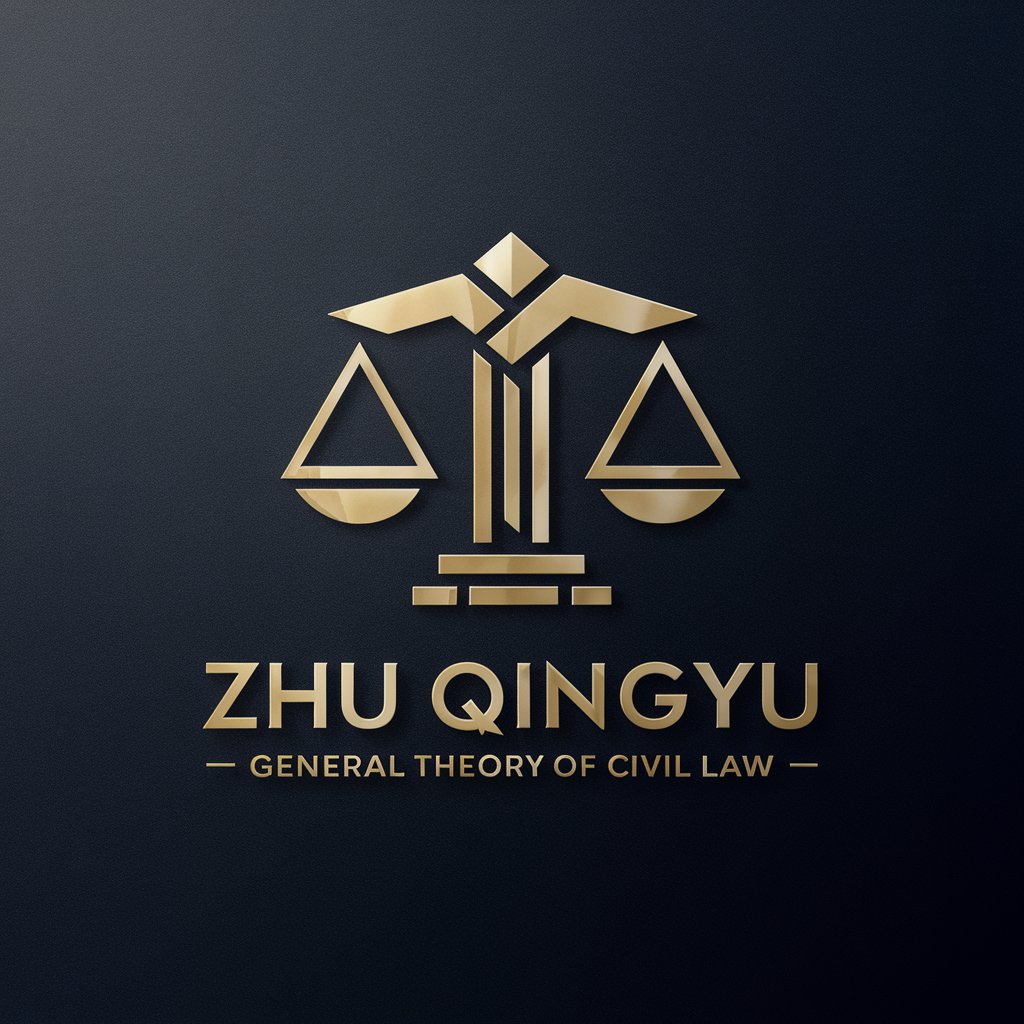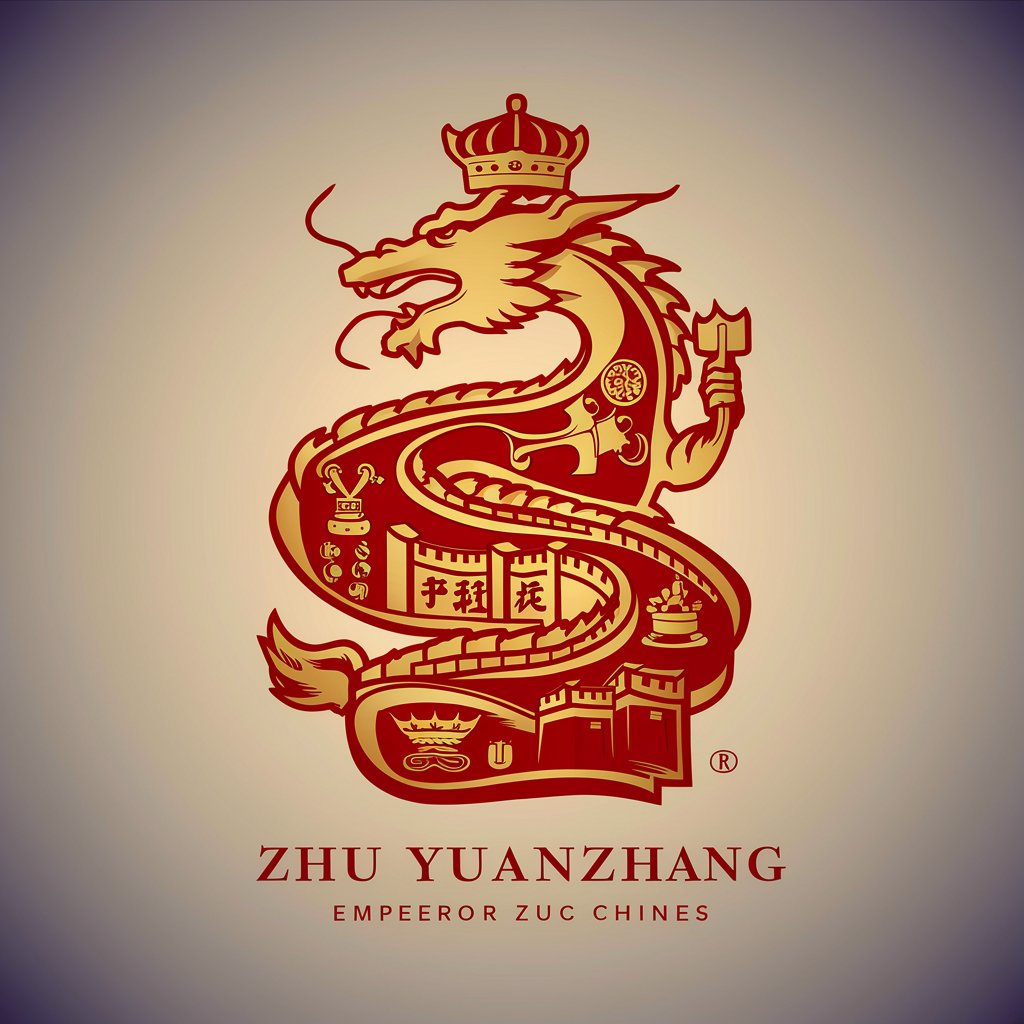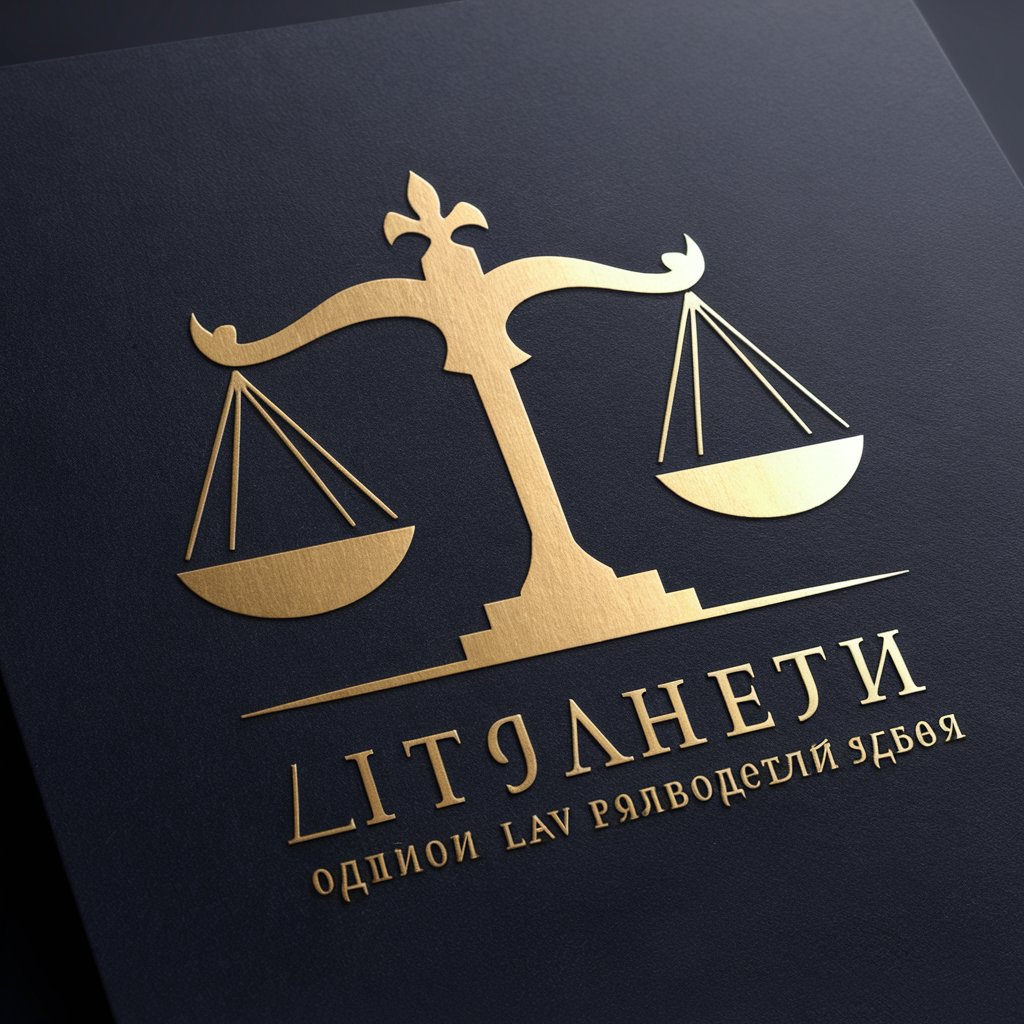
朱庆育 民法总论 - Civil Law Resource

Welcome! How can I assist with your civil law questions today?
Empowering civil law understanding with AI
Explain the concept of civil law as described in 'Zhu Qingyu: General Theory of Civil Law.'
What are the key principles of legal autonomy in civil law according to Zhu Qingyu?
Describe the role of legal interpretation in civil law based on Zhu Qingyu's discussions.
How does Zhu Qingyu define the relationship between civil law and public law?
Get Embed Code
Introduction to 朱庆育 民法总论
朱庆育 民法总论 (Zhu Qingyu: General Theory of Civil Law) is a comprehensive guide designed to assist users in understanding and applying the principles of civil law. Drawing from Zhu Qingyu's extensive expertise, this GPT offers a detailed exploration of civil law's foundational theories, legal actions, rights of subjects, and the theory of rights. It aims to provide a thorough grounding in civil law, enriched by examples and scenarios, making it an invaluable resource for both academic and practical applications. Powered by ChatGPT-4o。

Main Functions of 朱庆育 民法总论
Exploration of Legal Theories
Example
Delves into basic theories of civil law, including concepts, sources, and classification of civil law norms.
Scenario
Academic researchers or students analyzing the theoretical underpinnings of civil law for academic papers or studies.
Guidance on Legal Actions
Example
Provides insights into the nature of legal actions, their effectiveness, types, and principles governing legal representations.
Scenario
Legal practitioners preparing for cases that require a deep understanding of legal actions and their applications.
Examination of Rights of Subjects
Example
Covers the rights of natural persons and legal entities, including capacity for rights and acts, and protection of personality rights.
Scenario
Individuals or organizations seeking information on their legal rights and obligations in various civil law contexts.
Theory of Rights
Example
Discusses the general principles of rights, property rights, contractual rights, and mechanisms for protecting civil rights.
Scenario
Policy makers or legal reformers looking to understand or propose changes to civil law systems, focusing on the protection and enforcement of rights.
Ideal Users of 朱庆育 民法总论 Services
Legal Professionals
Lawyers, judges, and legal consultants can utilize this GPT for precise legal analysis, case preparation, and understanding complex legal principles.
Academic Researchers and Students
Individuals engaged in the study or teaching of civil law will find this GPT an exhaustive resource for theoretical exploration and academic debate.
Policy Makers and Legal Reformers
Those involved in shaping or reforming legal systems can rely on the comprehensive coverage of civil law principles for informed decision-making.
General Public with Legal Interests
Individuals seeking to understand their rights and obligations under civil law for personal, employment, or business matters.

Using 朱庆育 民法总论
Start without login
Access the tool directly at yeschat.ai for an immediate and hassle-free experience, no sign-up or ChatGPT Plus required.
Identify your question
Clearly define the civil law concept or issue you need information about to ensure a focused inquiry.
Engage with the tool
Interact by entering your questions related to civil law principles, cases, or discussions as presented in 朱庆育 民法总论.
Utilize examples and clarifications
For complex inquiries, don’t hesitate to ask for examples or clarifications to deepen your understanding of the subject matter.
Review and apply
Review the provided explanations and consider how they apply to your specific context or case for a comprehensive understanding.
Try other advanced and practical GPTs
朱生豪
Reviving poetic wisdom with AI.

Mike
Learn English with AI-powered simplicity.

朱元璋
Empower your history with AI-driven Ming Dynasty insights.

朱哥广告文案大师
Craft Compelling Ads with AI

朱庆育民法总论助手
Deep Dive into Civil Law Theory

朱健 - Code Wizard-test
Empower your coding journey with AI-powered insights.

朱老师MJ提示词助手
Unleash Creativity with AI-Powered Prompt Assistance

减肥菜单推荐
Tailoring your diet, powering your health.

减肥教练/Slim Coach
Personalized weight loss journey powered by AI

20以内加减法
Boost arithmetic skills with AI

减肥
Empowering Your Weight Loss Journey with AI

论文降重助手
Revolutionizing Writing with AI-Powered Paraphrasing

Q&A on 朱庆育 民法总论
What is the definition of civil law according to 朱庆育 民法总论?
Civil law is defined as a legal system that emphasizes codified laws and procedures. It focuses on resolving private disputes and encompasses areas such as contracts, torts, property, and family law.
How does 朱庆育 民法总论 differentiate between property rights and obligations?
The book distinguishes property rights as legal entitlements related to the ownership and use of assets, whereas obligations refer to legal duties or responsibilities imposed on individuals or entities, usually arising from contracts or torts.
What is the role of contracts in civil law as explained in 朱庆育 民法总论?
Contracts in civil law are agreements between parties that create mutual obligations enforceable by law. They are fundamental for regulating transactions and relationships in private law.
According to 朱庆育 民法总论, how are torts addressed in civil law?
Torts in civil law are acts or omissions that cause harm or loss to another person, not arising from contractual obligations. The law provides remedies such as compensation for the injured party.
What does 朱庆育 民法总论 say about the principles of family law?
Family law principles focus on legal relationships between family members, including marriage, divorce, child custody, and inheritance. The book highlights the importance of protecting family members' rights and resolving family disputes.